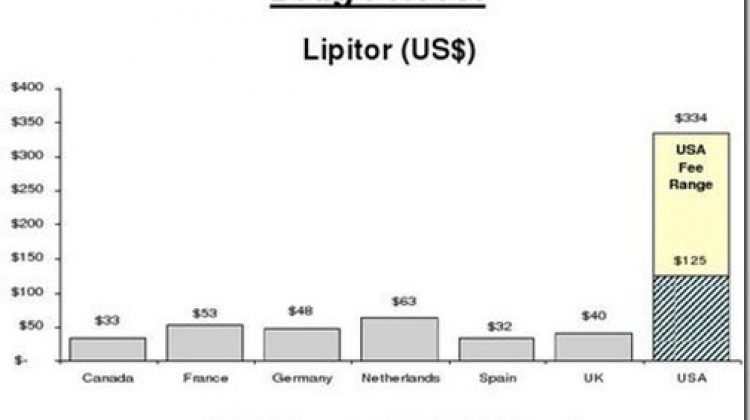Lieberman Didn’t Make Me Decide To Oppose The Bill
Nate Silver points out: The Record Profits Myth strikes again — I don’t like the insurance companies either; I’d gladly get rid of them and replace them with single payer. But the industry’s profits are low: only about 3.3%. So what happens when insurance companies are forced to spend 85-90% of premiums on health care […]

The Record Profits Myth strikes again — I don’t like the insurance companies either; I’d gladly get rid of them and replace them with single payer. But the industry’s profits are low: only about 3.3%.
So what happens when insurance companies are forced to spend 85-90% of premiums on health care coverage? It’s obvious they aren’t going to let their profits take much more of a hit, so where will they make up the difference?
In 2007, adults with employer coverage faced an average of $729 annually in OOP costs for medical services, including deductibles and other forms of cost sharing such as copayments and coinsurance. That represents a 34 percent increase from 2004, when the average OOP burden was $545. Health plans covered a slightly smaller percentage of overall expenses in 2007 than 2004, but growth in overall health spending was the chief culprit behind rising out-of-pocket costs.
There was a 34% increase in out-of-pocket expenses over 3 years, and this report is almost 3 years old now. I haven’t seen anything in the current legislation to deal with this.
I have been bringing up the fact for months now that Congress isn’t doing anything to curtail costs. Yes the insurance companies are bad, but they aren’t the only ones guilty in this. Let me show a couple of graphs that Ezra Klein pointed out in November:
Those are just some very common items. You can find many more in this pdf file.
So when we see how much more the U.S. is paying for very common medical items as compared to other industrialized nations, we have to step back and ask ourselves if the insurance companies should be our primary focus? It’s not the 3.3% profits the insurance companies are making that is increasing out costs, it is the sky high prices we pay for things like drugs, office visits and testing.
In part a lot of these high costs are a direct result of insurance. Insurance is a very complicated beast that requires a ton of administrative overhead. Again – there is nothing in this bill that addresses that problem.
Cost containment has been my biggest argument all along. The only thing keeping my support for the bill was measures to help curtail the only cost addressed, insurance, and that was done through a public option, which is gone now.
Health care reform should have never been only about the insurance and pharmaceutical companies – it should have been about the industry as a whole. Congress half-assed the job by only looking at one piece of the pie, instead of the pie as a whole. For that very reason my support has always been rather iffy on the proposed healthcare reform measures. Lieberman just became the final nail in the coffin to me.
Adding…As someone who has worked in the healthcare industry, I know first hand the overhead associated with administrative costs. I know how much it costs to transport someone in my ambulance and how much it costs to pay office people to deal with the miles of paperwork, and that’s for something simple like going from one hospital to the other. The administrative costs are higher, and that is a key indicator of the failure of our system.









